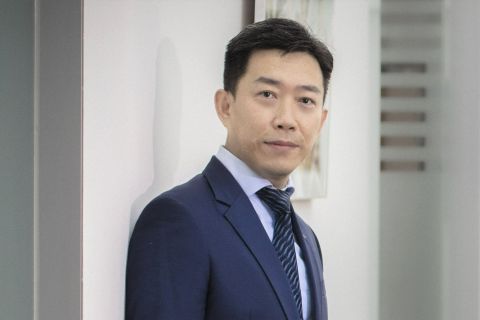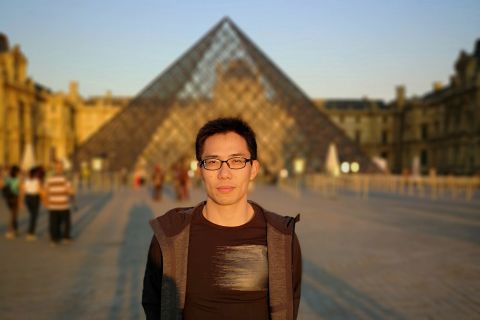
By Grace Segran
SMU Office of Research & Tech Transfer – Working remotely has great potential to increase the strain and tension experienced by employees. For many, skyrocketing COVID-19 case counts have shut schools and deepened the child-care crisis.
These challenges pre-date COVID-19 and will not be going away for the career woman when the pandemic ends. However, women may find it beneficial to apply a paradox mindset.
SMU PhD in Psychology candidate Huang Tengjiao studied the role of a paradox mindset in the context of working motherhood for her Senior and Masters theses, on which her paper “Harnessing Paradox Mindset to Promote Working Motherhood through Career-Motherhood Enrichment" was built. She also received the 2021 SMU Interdisciplinary Doctoral Fellowship, which is awarded to existing PhD students who have shown exemplary pursuit of research that crosses traditional disciplinary boundaries.
The inspiration for this topic came from her advisor, SMU Associate Professor of Psychology Angela Leung, but it was also personal.
“Our daily lives are awash with competing work-family demands and tensions. In the context of working motherhood, some women may decide to cope with these tensions by focusing on either their work or family roles. For example, my mum became a stay-at-home mother because she believed that she would not be able to cope with both roles. While she has found fulfilment from motherhood, she has lamented over missed opportunities and unrealised potential at work,” she told the Office of Research and Tech Transfer.
In contrast, other women may choose to pursue both roles and yet manage to find success in both work and family spheres. One example is Professor Leung, whom Huang highlights as the epitome of how women can have it all – seeking a rewarding career while nurturing their children.
Hence, Huang was interested to find out whether and how a paradox mindset can motivate women to take on seemingly antagonistic career-motherhood pursuits and subsequently benefit from these pursuits.
What is a paradox mindset?
While the inception of paradox theory is not recent, the paradox mindset construct was more recently proposed by one of Huang’s collaborators, INSEAD Associate Professor Ella Miron-Spektor and her team, in a 2018 paper published in the Academy Management Journal.
Paradox mindset refers to the degree that individuals are accepting of, and energised by, competing demands and tensions. “Individuals with a higher paradox mindset view tensions as both/and paradoxes instead of either/or dilemmas. Paradox research illustrates how learning to embrace, rather than avoid or reject, such opposing demands and tensions can enhance performance in various areas such as creativity and productivity.”
One useful framework to cultivating a paradox mindset, according to Professor Miron-Spektor and Professor of Management Wendy Smith from the University of Delaware, is reframing the question, accepting the tension, and distancing to search for integrative solutions.
“In the context of my research, it would mean that women could first reframe the question from ‘Should I pursue my career or motherhood aspirations?’ to ‘How can I pursue both career and motherhood at the same time? How can motherhood benefit my career and vice versa?’”, Huang clarifies.
Second, Huang suggests that women could learn to accept that the competing demands and tensions of work and motherhood are natural and common. By accepting these tensions, women could become more comfortable with these tensions and hence be less likely to avoid or reject them.
Third, women could distance themselves from these tensions and try to gain new perspectives from other people. For example, sharing career-motherhood concerns with their partner, co-workers, or other working mothers may offer comfort and inspire them to find ways to simultaneously pursue both roles.
The studies
Huang says that paradox studies have mostly investigated organisational tensions (e.g., collaboration vs. competition, control vs. flexibility). This research provides a novel perspective by integrating paradox theory to understand the work-life phenomena – namely, the paradox that may lie at the intersection of career and motherhood.
“My team and I conducted 4 studies (Studies 1a, 1b, 2, and 3), comprising female participants in different life stages (undergraduates, working women, and working mothers) across four cultures (Singapore, Israel, U.S., and U.K.).”
They recruited both experimental and correlational designs to uncover how, why, and when a paradox mindset can encourage women to pursue both a career and motherhood (Studies 1a, 1b, and 2), and promote their actual experience of career-motherhood enrichment (Study 3). The study sample sizes ranged from n=104 to n=205.
The findings and applications
The team found that adopting a paradox mindset helped women appreciate how career and motherhood roles can enrich one another.
“For example, with a paradox mindset, women may realise how motherhood can foster skills that help them become a better worker,” Huang notes. “In turn, this appreciation encouraged women’s intentions to become a working mother and experiences of actual career-motherhood enrichment. However, these benefits of a paradox mindset were limited when career-motherhood tensions were excessive.”
From a practical perspective, this research may inform organisations of the value of a paradox mindset in helping employees negotiate not only paradoxical tensions at the workplace but also tensions that originate from the work-family interface. Relatedly, it suggests that it may be advantageous to emphasise how work involvement can enrich family involvement, and vice versa.
“Rather than focusing on how being a mother (a career woman) takes away time and energy available for their career (motherhood) role, it may be helpful to acknowledge how dual-role involvement can bring benefits that would otherwise not be realised when pursuing only one role,” Huang opines.
At the same time, this research alludes to the importance of addressing the perceptions and experiences of excessive career-motherhood tensions, she adds. Towards this end, organisations may complement family-friendly policies that aim to minimise these work-family pressures by also educating employees about the potential synergistic benefits from pursuing both work and parenting roles.
While Huang has yet to form concrete career plans, she says she intends to continue her research pursuits.
Back to Research@SMU Feb 2022 Issue
See More News
Want to see more of SMU Research?
Sign up for Research@SMU e-newslettter to know more about our research and research-related events!
If you would like to remove yourself from all our mailing list, please visit https://eservices.smu.edu.sg/internet/DNC/Default.aspx

